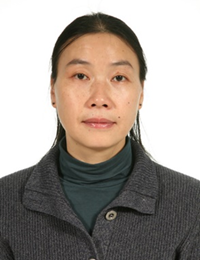FENG Yan

FENG Yan
Associate Professor
Email: fy_575@sjtu.edu.cn
Phone: 86- 21-63846590-776965
Research Interests: Environmental exposure and health effects
Education
1999-2004, Ph.D in Pathophysiology, West China Medical Center of Sichuan University, China
1990-1995, Bachelor of Medicine, Beijing Medical University, China
Professional Experience
2006-present, Lecturer/Associate Professor in Shanghai Jiao Tong University School of Medicine
2009-2011, Postdoctoral Research Associate in the Department of Pulmonary Immunology, UT tyler, USA
2004-2006, Postdoctoral fellow in Department of Immunology, Shanghai Jiao Tong University, China
1995-1999, Health doctor, Center for Disease Control and Prevention, Bei Hai, Guang Xi, China
Research Interests
Regulation of environmental endocrine disruptors (EEDs) on immune and endocrine system
Adverse effects of environmental endocrine disruptors (EEDs) on female fertility and fecundity
Selected Publications
Cheng W, Li X, Zhou Y, Yu H, Xie Y, Guo H, Wang H, Li Y, Feng Y, Wang Y. Polystyrene microplastics induce hepatotoxicity and disrupt lipid metabolism in the liver organoids. Sci Total Environ, 2021, 806(Pt 1):150328.
Luo F, Guo H, Yu H, Li Y, Feng Y, Wang Y. PM2.5 organic extract mediates inflammation through the ERβ pathway to contribute to lung carcinogenesis in vitro and vivo. Chemosphere, 2021, 263:127867.
Liang F, Huo X, Wang W, Li Y, Zhang J, Feng Y, Wang Y. Association of bisphenol A or bisphenol S exposure with oxidative stress and immune disturbance among unexplained recurrent spontaneous abortion women. Chemosphere, 2020, 257:127035.
Wang W, Zhou W, Wu S, Liang F, Li Y, Zhang J, Cui L, Feng Y, Wang Y. Perfluoroalkyl substances exposure and risk of polycystic ovarian syndrome related infertility in Chinese women. Environ Pollut, 2019, 247:824-831
Wei H, Liang F, Cheng W, Zhou R, Wu X, Feng Y, Wang Y. The mechanisms for lung cancer risk of PM2.5: Induction of epithelial-mesenchymal transition and cancer stem cell properties in human non-small cell lung cancer cells. Environ Toxicol, 2017, 32(11):2341-2351.
Feng Y, Zeng W, Wang Y, Shen H, Wang Y. Long-term exposure to high levels of decabrominated diphenyl ether inhibits CD4 T-cell functions in C57Bl/6 mice. Long-term exposure to high levels of decabrominated diphenyl ether inhibits CD4 T-cell functions in C57BL/6 mice. J Appl Toxicol, 2016, 36(9): 1112-1119




